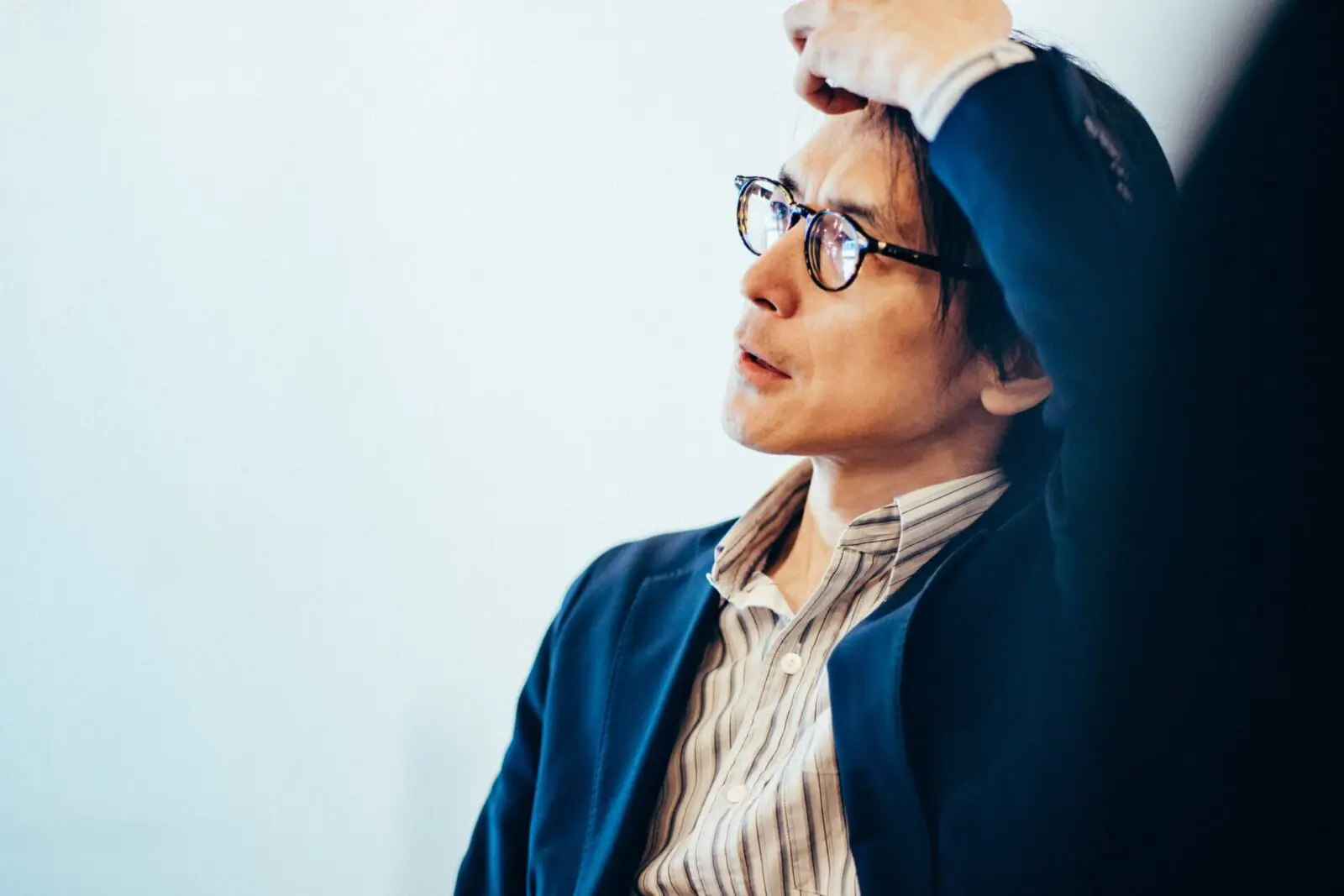Shikohin includes things like tea, alcohol, tobacco, shisha, non-alcoholic drinks and more.
What role does shikohin play in the lives of today’s youth?
In 2023, an essay contest was held for the first time where college students wrote about the themes, Shikohin in the Changing Generations, and Debating Contemporary Shikohin. The contest was sponsored by Japan Tobacco Inc. (JT) and many essays with unique perspectives were submitted.
One student commented that he reads DIG THE TEA, which led to this opportunity for us to cooperate in the event. For this article, we will be sharing the winning essays of this contest as well our coverage on a roundtable discussion held among the contest participants.
In 2021, DIG THE TEA published the article Solitude as an Essential for Human Thought: the Possibilities of ‘Shikohin.’ Interview with Philosopher Koichiro Kokubun which garnered a lot of attention. For the roundtable discussion, we invited Koichiro Kokubun, philosopher and professor at the University of Tokyo, and the award winning students to exchange their thoughts.
Professor Kokubun published an article The Pleasures of Enjoyment – A look at Shikohin, Purpose and Addiction in the July 2023 issue of Shincho where he discussed the theory of shikohin based on the philosophy of Immanuel Kant.
How do we understand the time we spend enjoying shikohin? In part 1 of this article, we will cover Professor Kokubun’s latest lecture and the roundtable discussion he held with students.
What defines enjoyment? Why Professor Kokubun chose shikohin theory for his latest paper

── First of all, please tell us what kind of shikohin you enjoy personally.
I enjoy most shikohin products including cigarettes, alcohol, coffee and tea.
I usually smoke one or two cigarettes a day, especially when I feel stuck while working on a paper. I like to go outside to take a breather and enjoy a smoke. For me a cigarette is not something I breathe in, but breathe out. I feel most relaxed when I am breathing the smoke out into the air. Shikohin has a kind of general effect on people, but the way people enjoy it depends on the individual.
In April 2023 I published a book titled Resistance to Purpose (目的への抵抗) (published by Shinkosha). In the book I argued that it is problematic that everything in our modern society is purpose oriented. However, I myself am a very purpose oriented person. In a way, I was addressing the book to myself.
Nonetheless, when I am enjoying shikohin in the midst of all the havoc of daily life, I feel a moment of freedom and liberation from my purpose oriented mindset.
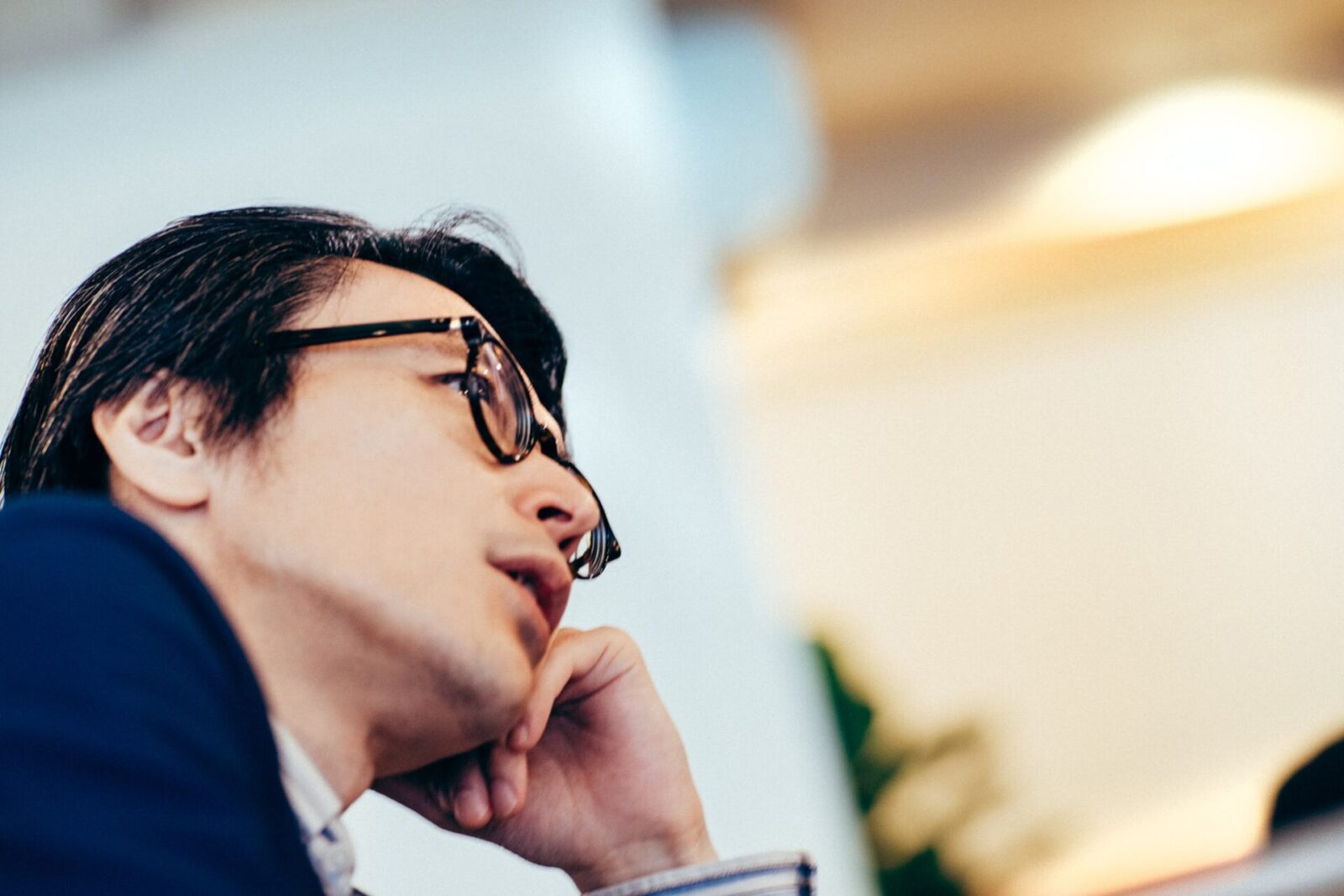
── Why did you choose shikohin as the topic of your paper, The Pleasures of Enjoyment – A look at Shikohin, Purpose and Addiction?
Ever since I published The Ethics of Leisure and Boredom in 2011, I have been thinking about what it means to “enjoy” and “get pleasure” out of something.
In The Ethics of Leisure and Boredom I addressed the importance of enjoying things and how everyone’s acts of enjoyment will change society. I had a very positive message about how education is important for enjoyment so we should all learn together.
However, even while I was writing that book I had the question, “what really defines enjoyment?” I wasn’t even sure myself.
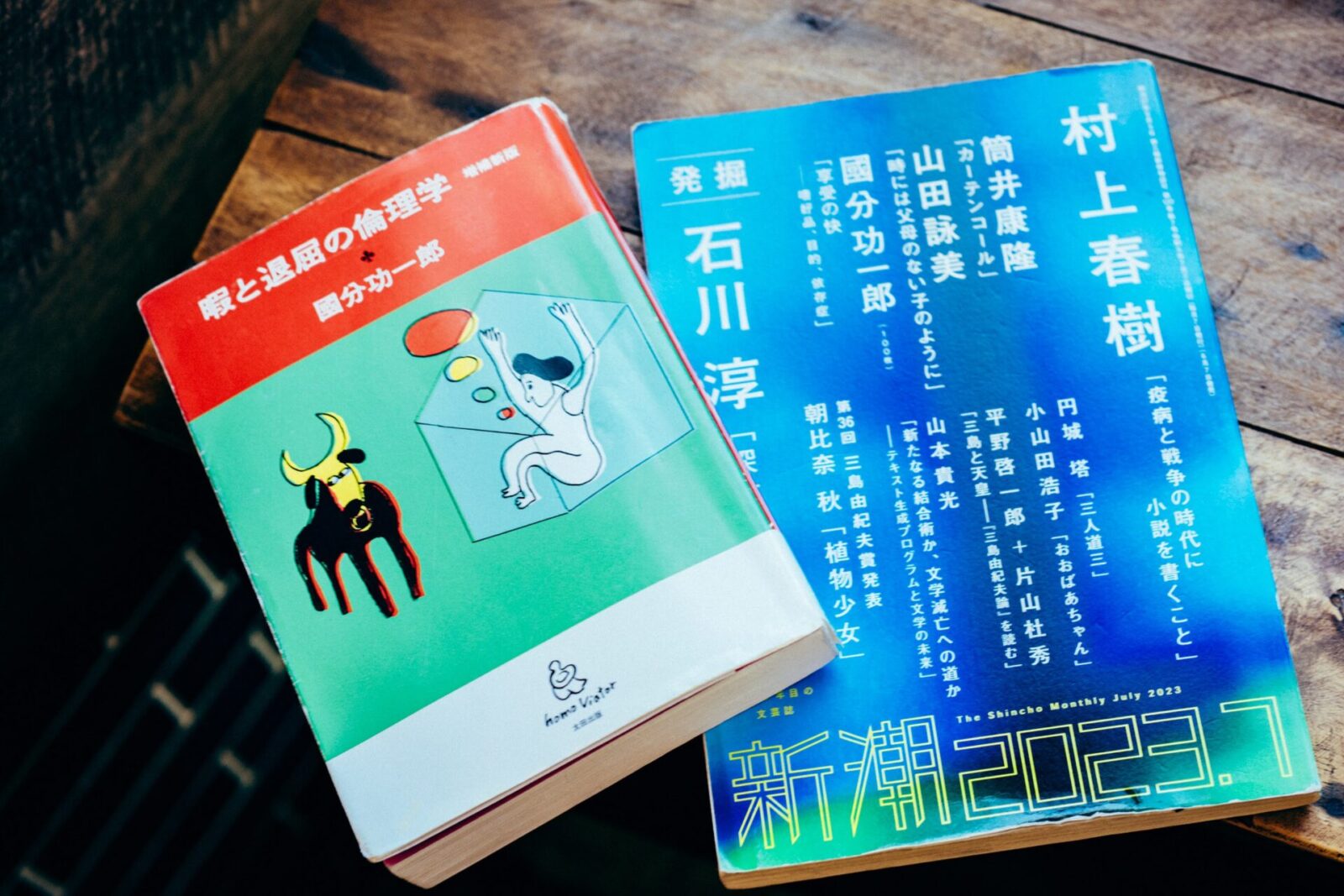
── Defining what enjoyment means is a profound topic.
In fact, there is hardly any definition of enjoyment in the field of philosophy. There was a hedonistic philosophy in ancient Greece that argued that pleasure was important for human beings, and it came about in opposition to the Stoic philosophy that was very restrictive of human desire. However, even here “enjoyment” was not defined.
The reason for this was probably because enjoyment was something that was looked down upon and not considered an issue that was worthy of discussion in philosophy.
── I read your book “Pleasures of Enjoyment” where you point out that German philosopher Immanuel Kant (1724-1804) also regarded enjoyment as something of low value.
In Kant’s philosophy, he divides everything into high value and low value. He is so intriguing because he writes about things in a very composed way, even though what he is saying can be quite selfish or rude. For example, when talking about senses he nonchalantly claims that vision is high value while taste is low value.
Kant’s four classifications of “pleasure”
── Doesn’t Kant also classify “pleasure” in levels of value?
There are four classifications of “pleasure” according to Kant. They are divided into desire and emotion and according to high or low values. There is (1) The Beautiful and True (2) The Sublime (4) The Pleasurable and I will explain what (3) is later.

Enjoying shikohin will fall under (4) The Pleasurable, but let’s look at how it differs from the other three.
First of all, (2) The Sublime, is the moral good.
This has a curious character because moral good can only be done for the sake of moral good. In other words, if someone does something “good” for the sake of their own benefit, it is not considered a “moral good”.
I once saw a poster on the wall of my daughter’s school that read, “It feels good to be kind to others”, which I found to be problematic. Do they mean to say that something is not kind if it does not feel good? (laughs) Moral good should never be done for the sake of something else.
Rather, Kant says that it is important to have an universally accepted structure (categorical imperative) that tells us what we must do.
Nonetheless, there is some pleasure to be derived from doing good. In this context, it is the pleasure that comes from the fact that you voluntarily chose to do good. Kant defined such moral good as high value.

── Moral good is of high value?
Yes. At an equally high value is (1) The Beautiful and True.
The Beautiful is self explanatory. It is when people see a rose and think it is beautiful.
As for True, it is a more modern and interesting feeling of pleasure. For example, there are moments when people are overwhelmed by the power of nature. When we are in the midst of a storm, we feel fear of being swallowed up by it but at the same time we feel a strength in knowing that we have the power to overcome it. Although it is very much a monologue within ourselves, we discover ourselves through it.
── On the other hand, (4) The Pleasurable is considered as low value?
It is considered low value if it is something that simply provides comfort.
The researchers of Kant’s philosophy often study high value things, but I found the low value “pleasurable” things to be interesting. I thought that by differentiating “pleasurable things” from the other three classifications, we can understand the true essence of pleasure and enjoyment.
One thing that became clear through comparison is that the other three classifications have a purpose or a purposiveness.
There is no question that moral good has a purpose in its idea of how people should be. The Beautiful and True, also has some purpose or purposiveness.
For example, purposiveness is when we see something of beauty and think that it “is how it should be” even if it was not necessarily made with purpose in mind. The keyword “should” is purposiveness.
On the other hand, pleasurable things do not have a purpose or purposiveness.
There is no “should” in smoking cigarettes. If someone orders you to smoke, it does not bring any pleasure. It is pleasurable because you do it on your own terms when you feel a little tired, or you escape the watchful eye of your boss to enjoy a smoke.
I call (4) The Pleasurable as “pleasures of enjoyment” and its meaning includes a certain purposelessness.
If we are bound by purpose, the pleasure of enjoyment is lost.
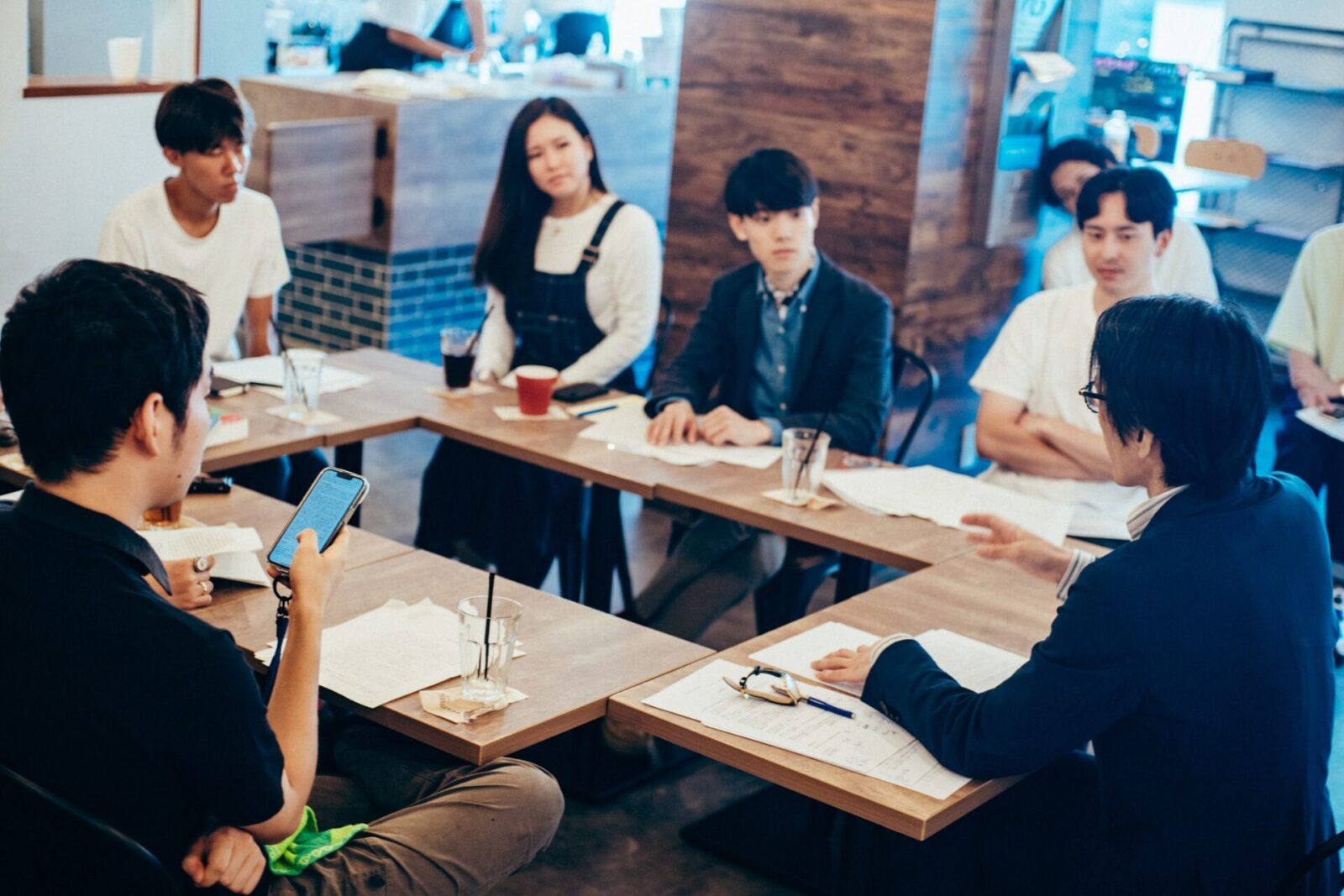
The purposelessness of The Pleasurable
── You are saying that the purposelessness of something is what makes it pleasurable, so the difference is the presence or absence of purpose. By the way, what is (3) in this graph?
It is when we are doing things that are low in desire but have a purpose. These are things that we do on a daily basis in our modern society.
For example, in my case it may be to work to finish a paper by a certain deadline. I recognize that it needs to be done and make it happen. In fact, there is a comfort that is achieved when we complete such purposes.
Another example is when students go to class to earn school credits. However, Kant described such purpose bound (3) things as a ”pathologisch” state.
In other words, all humans spend their daily lives in a pathological state.
Let’s compare (3) and (4).
(4) The Pleasurable has no purpose. It is things like drinking alcohol simply because we think it tastes good.
However, there are situations where the consumption of shikohin comes with purpose. For example, the purpose may be to get drunk. If one drinks without enjoying the flavor at all, this act will probably fall under (3).
I think we live our lives going back and forth between (3) and (4). This graph shows us that these two are actually very closely related.

What is pleasure? The difference between instinctual drive and desire.
──What are some examples of something changing from a (3) to a (4) or vice versa? I think there are cases where we start something with a purpose but find enjoyment while we are doing it when we become immersed in it.
To answer this, it is important to understand that humans have both “instinctual drive” and “desire”.
Instinctual drive is basically instinct. Desire is basically something that comes from the perception of others.
An example of desire is when a child sees a toy that a friend is playing with and wants to have it. René Girard (a French literary critic) argued that “human desire is created through a third party.”
Contrarily, instinctual drive is more rooted in our physical body. However, we must be careful because the word instinct can often be misleading. There is an idea that instinct is very static and like a program or code that is installed in a living organism. That aspect is not entirely untrue, but instincts are fundamentally something that we develop.
Migratory birds did not cross the ocean from the moment they appeared on this earth. At some point and for some reason, they developed the instinct to migrate. In the same way, human instincts are also developed.
I got this idea when I spoke with psychiatrist Takuya Matsumoto the other day and I think that the conversions between (3) and (4), or the pleasures of shikohin, is probably based on satisfaction of instinctual drive.
── So it is not “desire”?
There is a third party involved in the purpose of (3). For example, going to class for school credit is done because we want to graduate and acquire a certain level of status in society. This is where the perception of the third party comes in.
On the other hand, there may be a class that captures your attention and moves you in some way. This is a “pleasure of enjoyment” and there is a satisfaction here that is rooted in instinctual drive.

“All humans have small addictions”
── You have also talked about addiction from a philosophical perspective rather than medical. Philosophically speaking, what kind of state does addiction imply?
In the case of alcohol addiction, it is when someone is in a state where they lose all “enjoyment” from drinking. On the graph, it is when alcohol used to be a (4) but has converted to a (3).
It is when someone cannot function without drinking first thing in the morning. They cannot go out in public and may have flashbacks of terrible experiences. In order to drown those thoughts, they drink. They are in a state where drinking alcohol comes with a purpose.
For me, studying addiction is a central theme in contemplating what makes us human. I have a very strong interest in it and have collaborated with fellow researcher Dr. Shinichiro Kumagaya on this topic.
In my recent paper I have cited the book The Difficulty Found Thereafter ~ The people who live after the storm of trauma (published by Igaku-shoin) written by Harue Kamioka. Kamioka is the director of Women’s Darc House, a recovery support facility for women with drug addiction.
I spoke with Kamioka and was very moved by her words.
She said, “Recovery means the continuation of recovering.” In other words, the state of good health and bad health are not clearly separable, and it is important to continuously work on the process of recovery.
She also says, “It’s never okay to say, “no and never.”” We often see this message of “No” and “Never” used in drug use prevention campaigns, but when an addict sees this message, it only discourages them and makes them feel even more like a failure.
In other words, stigmatization does not lead to recovery but only causes more suffering for the addict.
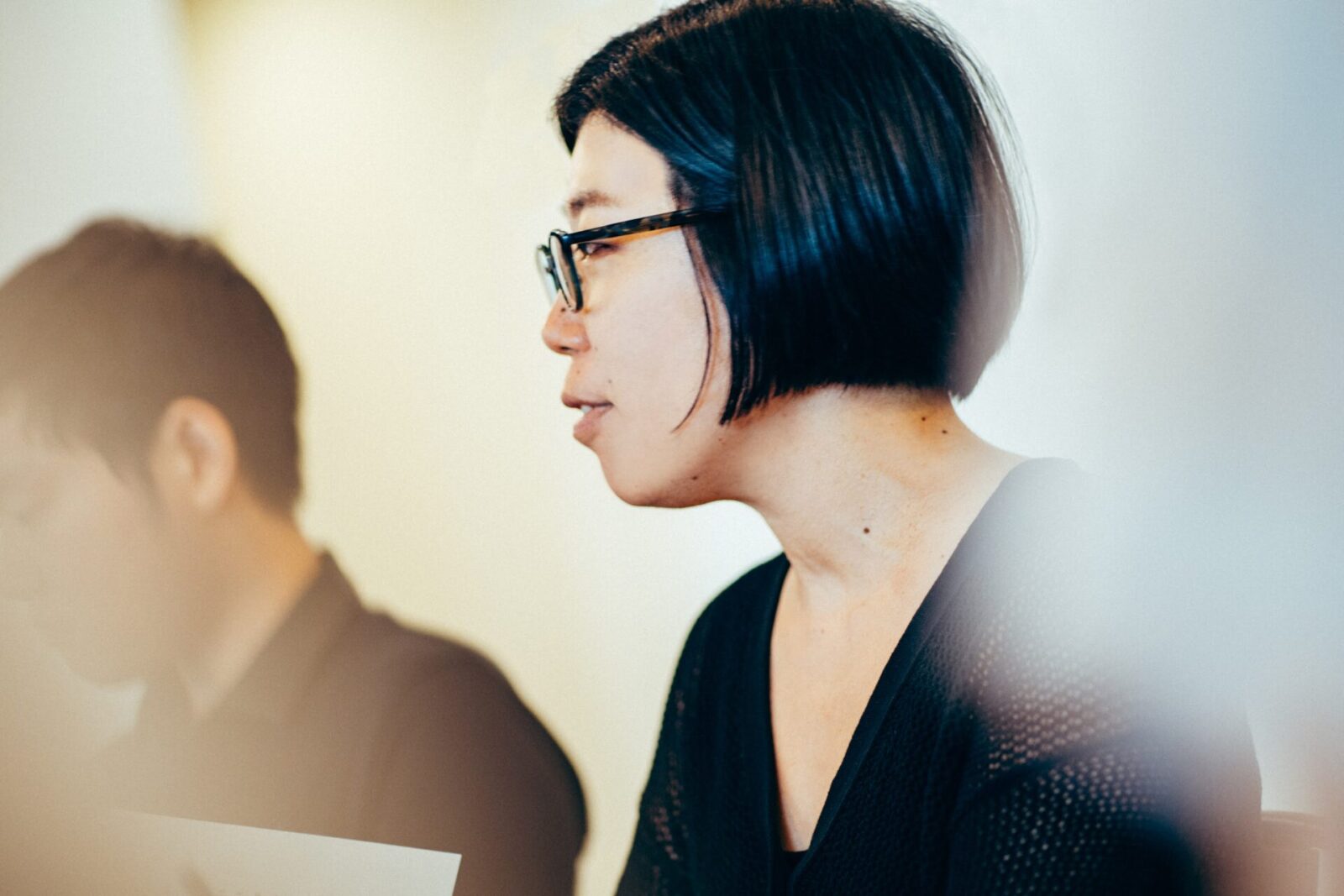
── Why do you think people become an addict?
Toshihiko Matsumoto, a psychiatrist and expert on drug addiction, says that recovery from drugs is not the state of being “free from drugs” or “sober”, but a state where one regains “connection with others”.
This can also be understood as addiction being the state where someone has lost connection with others.
We are all dependent on many things in our lives. In terms of human relations, we have our families, friends, relatives, neighbors and the people at our work or school.
In situations where someone with very few connections faces a difficult problem but has no one to talk to, they turn to drugs or alcohol and it becomes the only thing they can depend on.
Earlier I talked about how I like the act of breathing out when smoking cigarettes. This is also a form of addiction. However, I have multiple other small addictions that I use to balance myself and get by.
All humans have small addictions. To take that point further, I believe that dependency and addiction is a fundamental human condition in itself.
── Do you mean that all humans are dependent on something?
In the extended edition of my book The Ethics of Leisure and Boredom, I added a final chapter called “Wounds and Fate” and talked about Rousseau’s idea of the “natural man”.
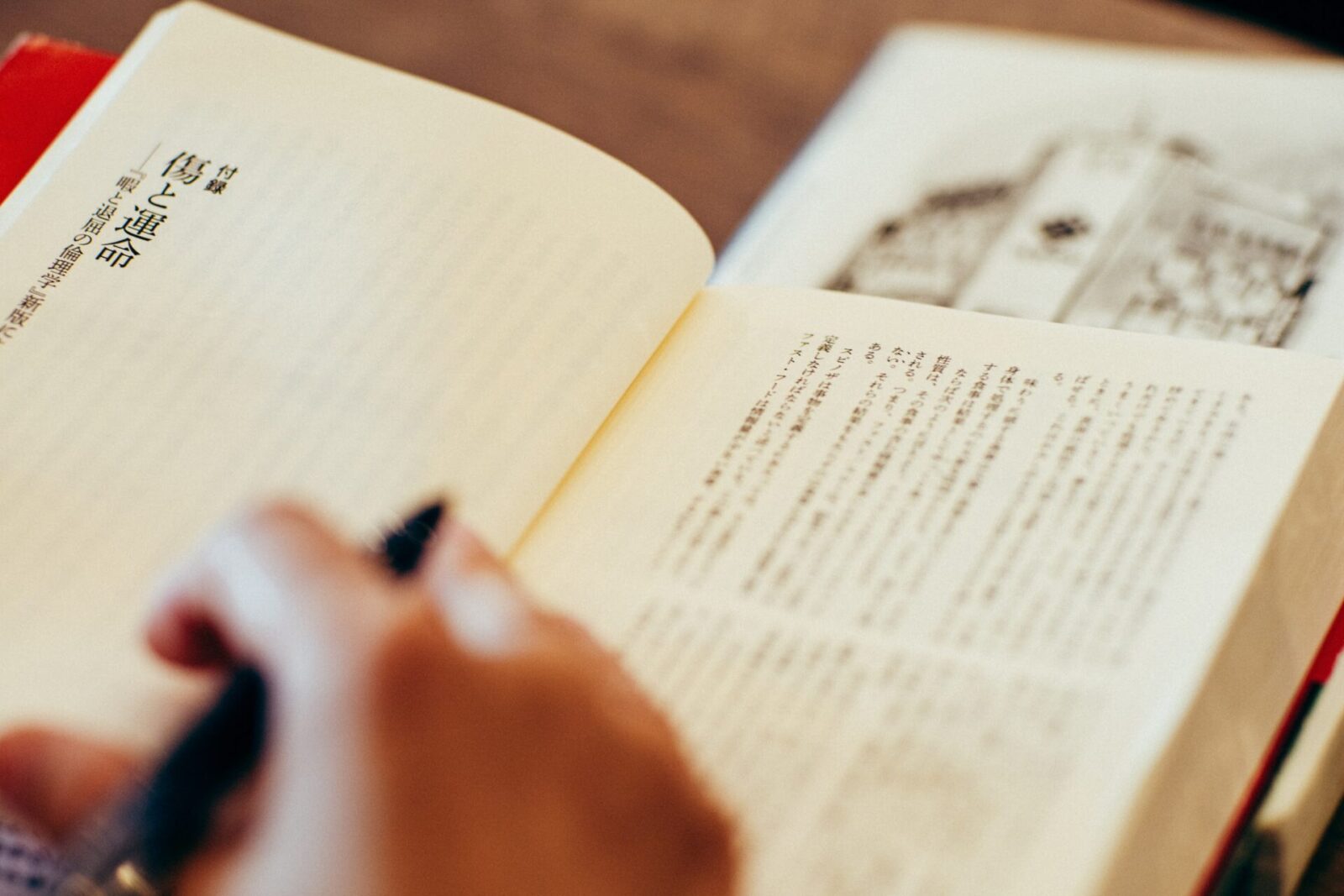
He talks about the state of living in our natural state, without any boundaries or limitations where we are free to do as we please.
He goes as far as saying that we have no reason to stay with someone the morning after we met and spent the night with them.
Although this may be an accurate description of a certain nature of human beings, I think it is an abstract concept and very different from the real human beings we know in real life.
Indeed, staying with the same person all the time is troublesome and a hassle, so Rousseau may be right. However, people still fall in love and desire to live together.
Why is that? I think it is because as people live their life, they will always get hurt.
Being born and crying at our first breath is a form of getting hurt. Being hungry but unable to eat is also painful. We accumulate hurt in our daily lives and these wounds develop our character.
Perhaps this hurt is what makes people attracted to each other. Perhaps that is why we need something to depend on.
Habits are an expression of modern society
After Kokubun’s lecture, the students shared their thoughts and questions. Below, we will introduce a few.
── You mentioned how humans being surrounded by purpose leads to the accumulation of hurt in their daily lives and enjoying shikohin is a way they get some comfort. When something converts from (3) to (4), perhaps there is a feeling of returning back to where we belong.
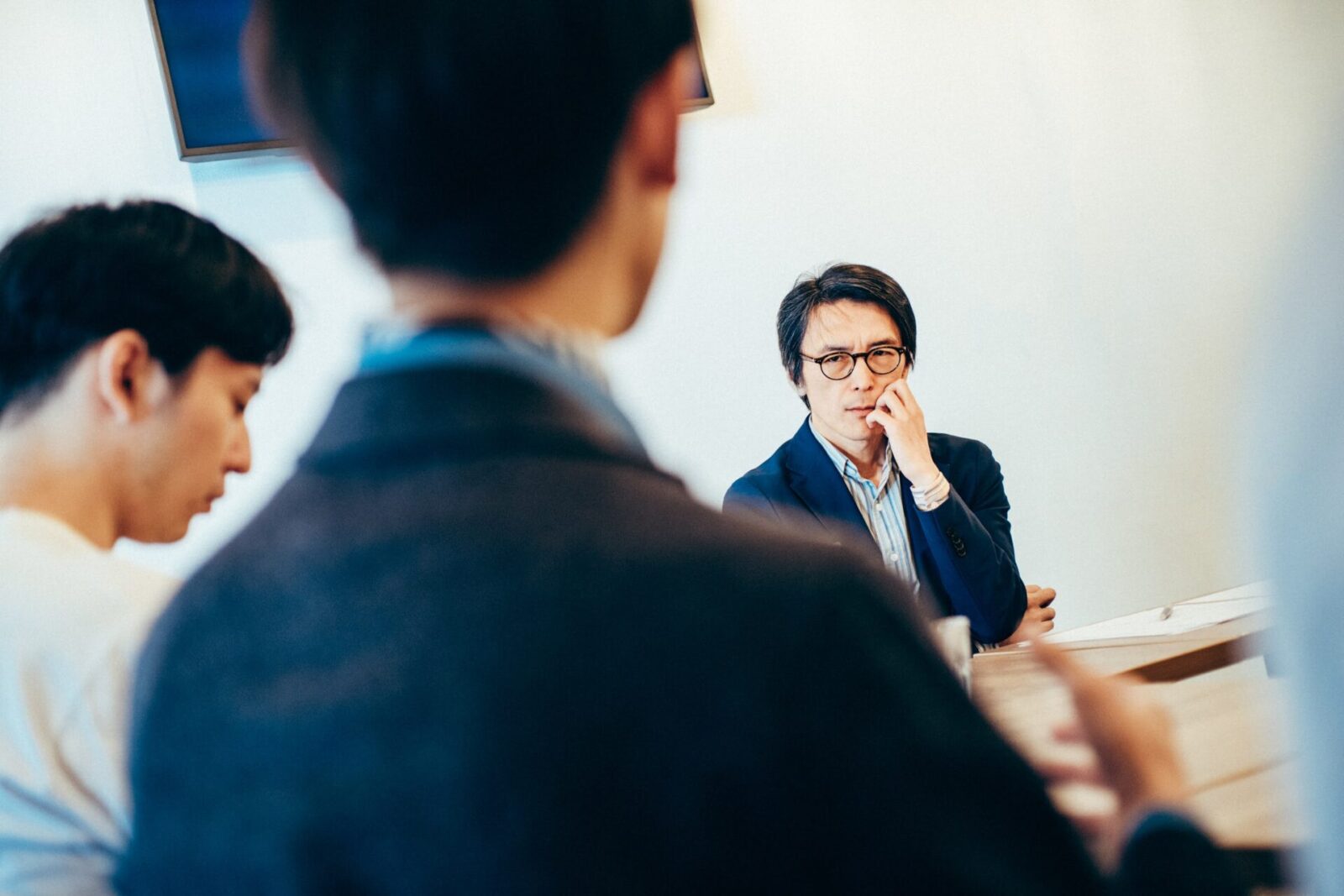
You mean that the feeling of “returning back” is associated with consumption and enjoyment. I can understand that sensation very well.
For example, when you are at work you have to be conscious of how the people around you see you. However, when you go eat a meal or smoke a cigarette alone, you are free to return to your natural state. Perhaps it is like coming back to yourself.
How should I explain it without using a metaphor?
People and animals have their own territory. Dogs tend to urinate all over the place. Territory may have something to do with habit. I think this is an important clue.
We have our own territory which includes our own habits. When you are living in tandem with them, you feel like yourself.
── Enjoying shikohin tends to be seen as a proactive activity, but perhaps it is a more passive and reactive action. Rather than looking for new pleasures, perhaps it is like returning to our original territory and habits.
Interesting. In my research on Gilles Deleuze (a French philosopher), he talks about territory.
Everyone lives their life while building territories. Even in this roundtable discussion, we are gradually identifying our personal space on these tables as our own territory while we talk.
Also, there is the Latin word “habitus” which was a very important concept in medieval philosophy. Very simply it means habit, but I think it is a key point when we are contemplating how to describe the act of smoking a cigarette.
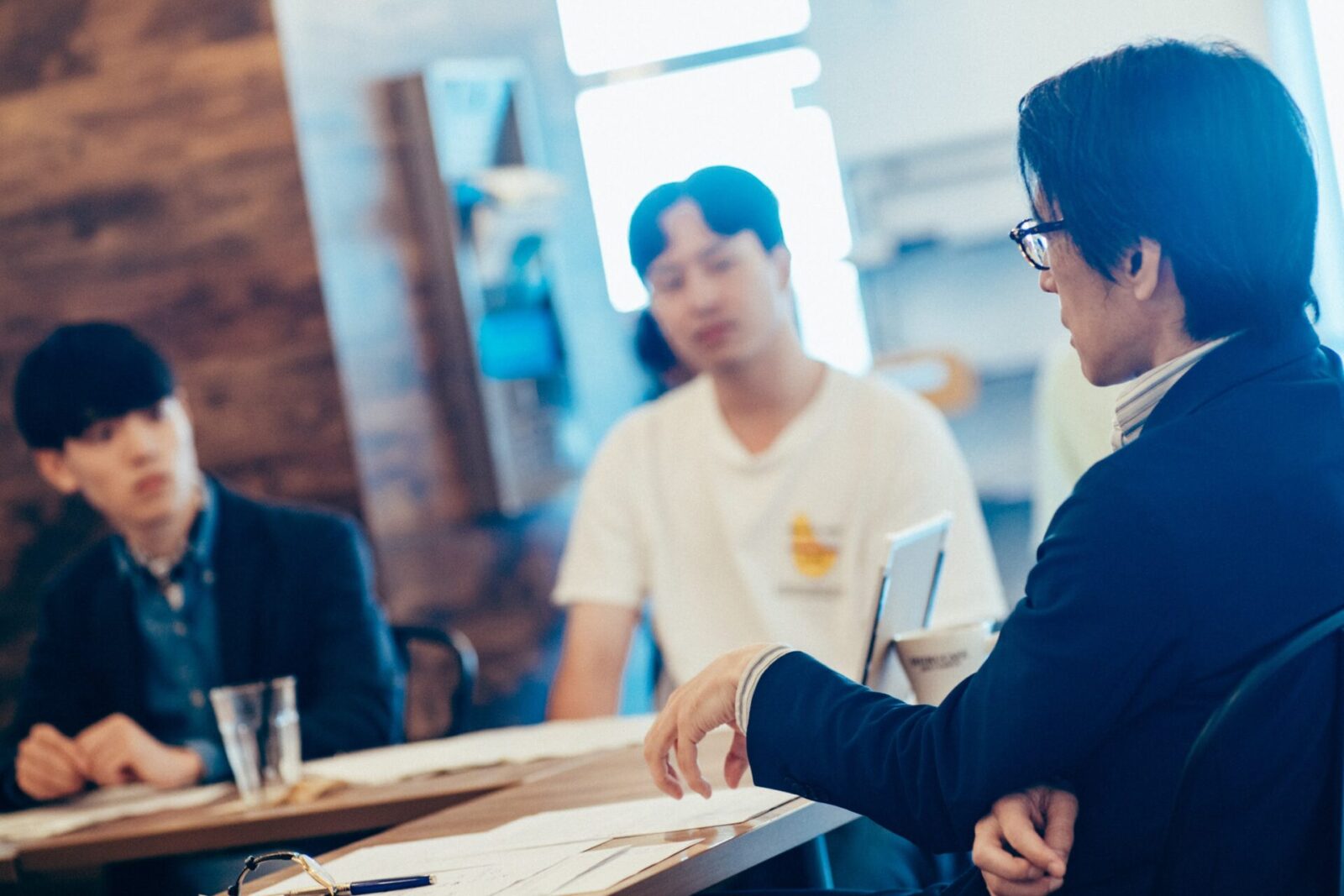
── Shikohin are also addictive in nature.
One of my favorite philosophers Giorgio Agamben (an Italian philosopher) talks about the concept of “form of life.”
It is a difficult topic, but it is basically about habit.
Having habits means to live life. Rather, living is essentially living our habits.
However, today’s capitalistic society is always breaking habits.
What I mean is that the challenges we face change almost every week. In the Industrial Age, huge investments were made in building factories where people would work to produce the same thing everyday.
While I was a young child, the Japanese economy was still industrial so our education was based on nurturing workers who would quietly repeat the same tasks everyday. The Ministry of Education probably made their educational guidelines with this in mind. However, our current society demands something very different. It demands creator-type minds who can solve the everchanging problems that arise every week.
In today’s world, we are being asked to change and adapt rapidly.
Zygmunt Bauman (a Polish philosopher) described this as a “liquid society”. Society which was once structured and solid is now liquified and sludgy and always changing in shape.
In my opinion, the human mind and body cannot cope with that for extended periods of time. Perhaps that is why we have an increase in the number of people who suffer from depression and other mental illnesses today.
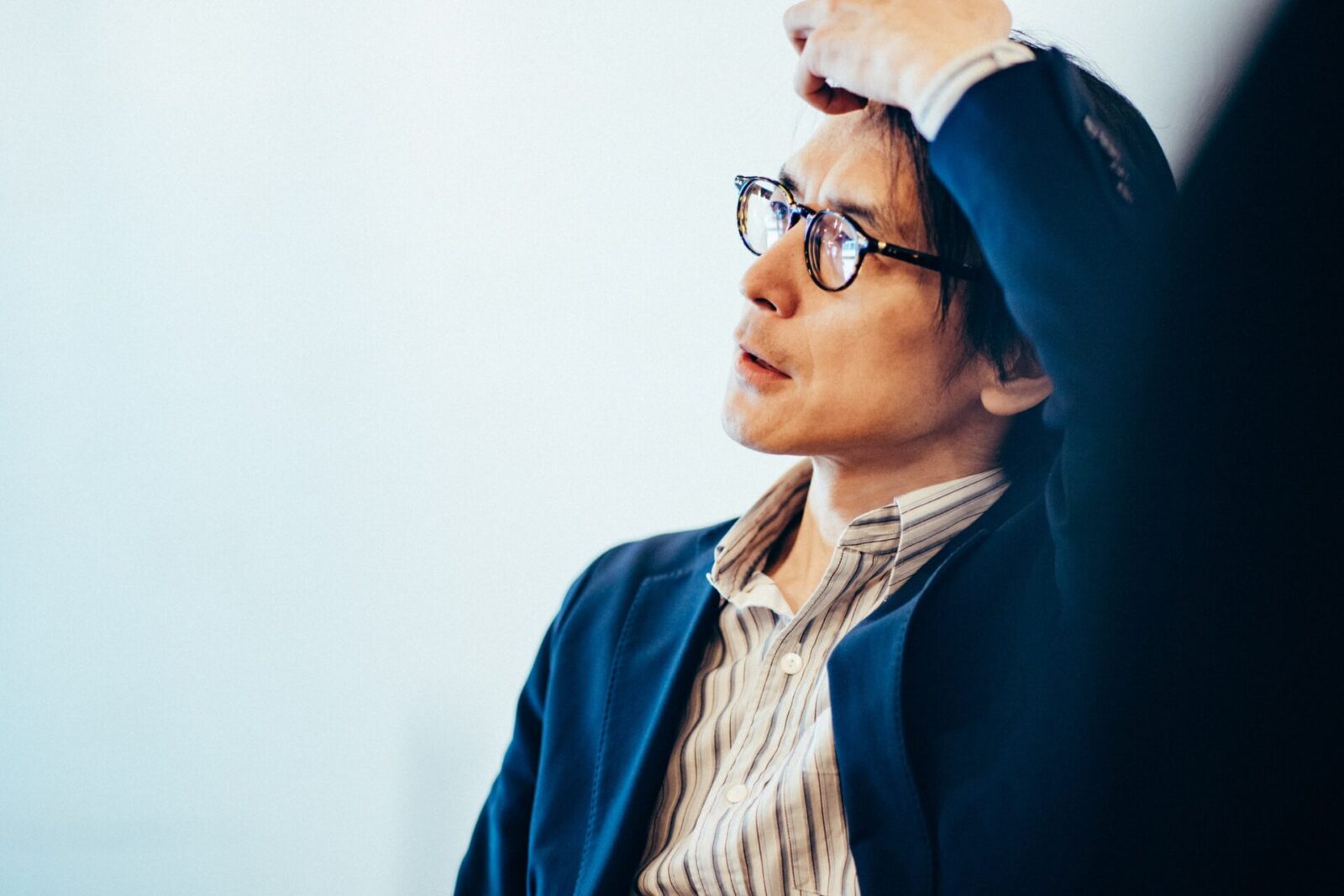
── I find that it is increasingly difficult to survive in a society that constantly requires us to change and spend our time being purpose oriented .
I often talk about the movie Rambo starring Sylvester Stallone.
There is a scene where Colonel Trautman says that Rambo has been trained to “eat things that would make a billy goat puke” to emphasize the extent that Rambo has been trained for all circumstances and how he is unbeatable.
In Japanese, the subtitles read that Rambo could “eat things that a goal puked”, so the translation was a little off, but the meaning is roughly the same.
In our modern world, everyone is forced to become Rambo. The challenges we face keep changing so we have to eat things that even the goat would throw up. What happens under these circumstances?
Rambo later develops PTSD (post-traumatic stress disorder). He is unable to live a normal life and the movie ends with a scene where he says, “I cannot even hold a job as a parking lot manager.”
This movie is about the Vietnam War and the economic circumstances of the time that forced people to live through a war. I get the same impression that I got from this movie
when I look at Japanese society today.
── I feel I learned that the time we spend enjoying shikohin free from purpose and our individual habits are the moments that define our humanity. Thank you for your talk.
*In part 2 we will explore the younger generation’s shikohin experiences through the award winning essays and the roundtable discussion.
Translation: Sophia Swanson
Photo: Kaori Nishida
Born in 1990, Nagasaki. Freelance writer. Interviews and writes about book authors and other cultural figures. Recent hobby is to watch capybara videos on the Internet.
Editor and creator of the future through words. Former associate editor of Huffington Post Japan. Became independent after working for a publishing company and overseas news media. Assists in communications for corporates and various projects. Born in Gifu, loves cats.
